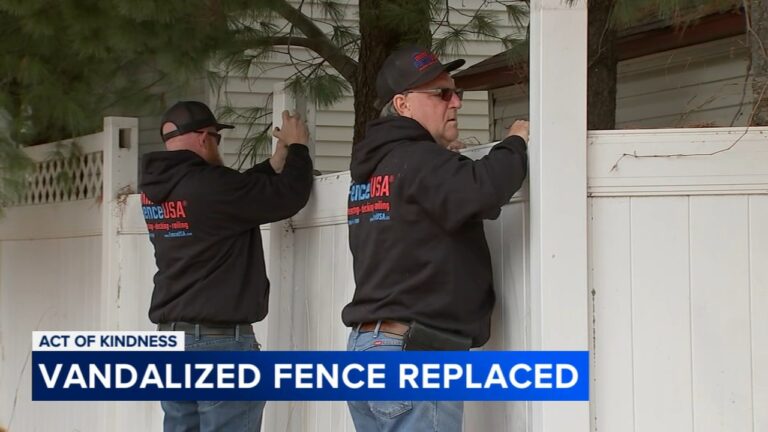JD Vance Discusses Trans Kids Controversy with Joe Rogan
JD Vance and Joe Rogan Dive Into the Heated Debate on Trans Kids
In a world grappling with issues of identity and acceptance, discussions around transgender rights, especially concerning youth, have ignited passionate debates. Recently, Ohio senator and author JD Vance made headlines when he sat down with Joe Rogan for a candid conversation about the controversy surrounding trans kids. This exchange unearthed various viewpoints about gender identity, medical treatments, and societal impacts. So, pull up a chair and let’s unpack this critical dialogue!
The Scene: A Invincible Podcast
Let’s set the stage. Joe Rogan, master of the long-form interview, invited JD Vance onto his popular podcast. If you’ve tuned into Rogan’s shows before, you know he has an exceptional talent for creating a space where guests feel comfortable expressing their opinions. The outcome? A frank and fierce discussion that left many listeners divided but deeply engaged.
Who’s JD Vance Anyway?
Before diving into the heart of the discussion, let’s take a moment to know who JD Vance is. He’s not just your average politician; he’s the author of the bestselling book “Hillbilly Elegy,” where he chronicles his upbringing in a working-class family in Ohio. Vance’s journey from the hills of Appalachia to Yale Law School wasn’t a cakewalk. Understanding his background is key, as it informs his perspectives on contemporary issues, including that of transgender rights.
The Talking Points: What’s at Stake?
Now, let’s take a look at some significant talking points that popped up during the podcast. It’s essential to understand both sides to navigate this complex subject.
Medical Interventions for Trans Kids
One of the focal points of the conversation was the medical interventions available to transgender minors. Vance expressed concern about puberty blockers and gender-affirming surgeries for young individuals. He argued that these choices should come with rigorous scrutiny, especially when you consider that kids are often unable to make such substantial life decisions.
But wait a minute—what does that actually mean for young people exploring their identities? For advocates, the availability of medical treatments is seen as a lifeline that can significantly improve mental health outcomes for transgender youth. Take, for example, the experience of countless individuals who, once transitioning, experienced a marked decrease in anxiety and depression. Isn’t the youth’s mental well-being worth protecting?
Societal Perspectives and Family Engagement
The conversation didn’t stop at medical interventions; JD Vance also touched on societal attitudes toward transgender youth and the role of families. He emphasized the need for parents to engage fully in their children’s journey. But here’s where it gets tricky: How do you balance parental involvement with a kid’s autonomy?
Rogan, known for his thought-provoking questions, posed challenges regarding acceptance and understanding within families. Shouldn’t parents be equipped with all the tools to help their kids? This dialogue echoed a sentiment that many of us can relate to: the need for open conversations at home.
A Spectrum of Opinions
What’s crucial to understand is that opinions on this matter aren’t black and white. Vance represents a viewpoint that values caution—he suggests implementing stricter regulations around medical treatments for minors. In contrast, advocates for transgender rights argue for a more permissive approach, citing the principles of self-identity and the emotional turmoil of being denied access to supportive healthcare.
Both perspectives raise valid points, making it a debate that demands a nuanced understanding rather than mere sensationalism.
Why the Conversation Matters
You might be wondering, “Why should I care about this debate?” Well, it hits home for many. As society evolves, discussions around gender identity become increasingly relevant, especially among the youth.
Emotional Health
Let’s face it, mental health isn’t just a buzzword—it’s an absolute necessity. According to research, transgender youth are at higher risk for depression and anxiety. Those who have access to affirming care report lower rates of suicidal ideation. This data should matter to us all; isn’t everyone entitled to a chance at happiness? As we sift through statistics and anecdotes, the importance of supportive environments—both societal and familial—shines through.
Legislative Impact
Discussions like those held between Vance and Rogan don’t happen in a vacuum. Legislation is often a reflection of public opinion, and the more these topics are debated in public forums, the more likely we are to see changes in policies around transgender rights. It’s a snowball effect, folks, and being informed is the first step to engaging in meaningful activism.
Conclusion: A Call for Compassionate Dialogue
In the end, the conversation between JD Vance and Joe Rogan provides a snapshot of an ongoing societal dialogue. While disagreements exist, the foundation of the discussion should remain rooted in compassion and understanding.
Navigating these complex issues requires an open heart and an open mind. Listening actively to diverse perspectives can be a powerful tool in fostering an environment where everyone feels valued and understood. So, let’s keep the lines of communication open and continue these critical conversations.
FAQs
Q1: What did JD Vance and Joe Rogan discuss?
A1: JD Vance and Joe Rogan discussed the controversial topics surrounding transgender kids, focusing on medical interventions and family involvement.
Q2: Why is the issue of trans kids so controversial?
A2: The issue is contentious due to diverging views on medical treatments for minors, parental involvement, and the broader societal implications for LGBTQ+ youth.
Q3: What impact does medical intervention have on transgender youth?
A3: Medical interventions can significantly improve mental health for transgender youth, lowering rates of depression and anxiety.
Q4: How does public opinion influence legislation on transgender rights?
A4: Public discourse shapes legislative action; widespread discussions can lead to changes that affect the rights and healthcare available to transgender individuals.
Q5: How can families navigate conversations about gender identity?
A5: Open dialogue, empathy, and education are key. Parents should engage proactively and sensitively, ensuring children feel supported in their identity exploration.







